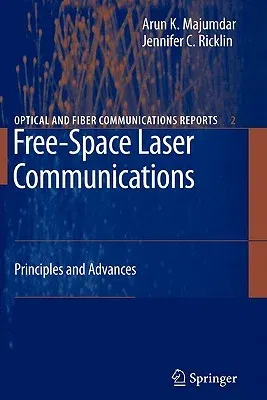Free-space laser communications, also referred to as optical communica-
tions, is a popular subject in today's technological marketplace. A
number of conferences on this subject have been organized by
professional societies such as SPIE (the International Society of Photo
Optical and Instrumenta- tion Engineering), OSA (Optical Society of
America), and IEEE (Instituteof Electrical and Electronics Engineers).
The evolving technology of free-space laser communications is emerging
as an appealing alternative to RF com- munications for links between
satellites, as well as a promising addition to terrestrial applications
such as video or computer linkups between buildings. There is a pressing
need for more information on laser communications that is comprehensive
enough to provide in-depth knowledge of free-space com- munications, and
that can satisfy the current demands of the research and commercial
needs. This book has been designed to provide a comprehensive, unified
tutorial to further understanding of the fundamental techniques for
laser communi- cations through the earth's atmosphere. The driving force
behind free-space laser communications is the continuous demand for
higher bandwidth to deliver high-capacity voice, data, and images to the
customer. Free-space propagation distances include ranges that encompass
a few millimeters (for example between optical interconnects in a
computer using photonics to replace metal interconnects), a fewmeters
(such as indoor communications), a fewkilometers (between buildings,
campuses, and hospitals), and even up to thousands of kilometers (such
as from an aircraft or satellite to the ground).

